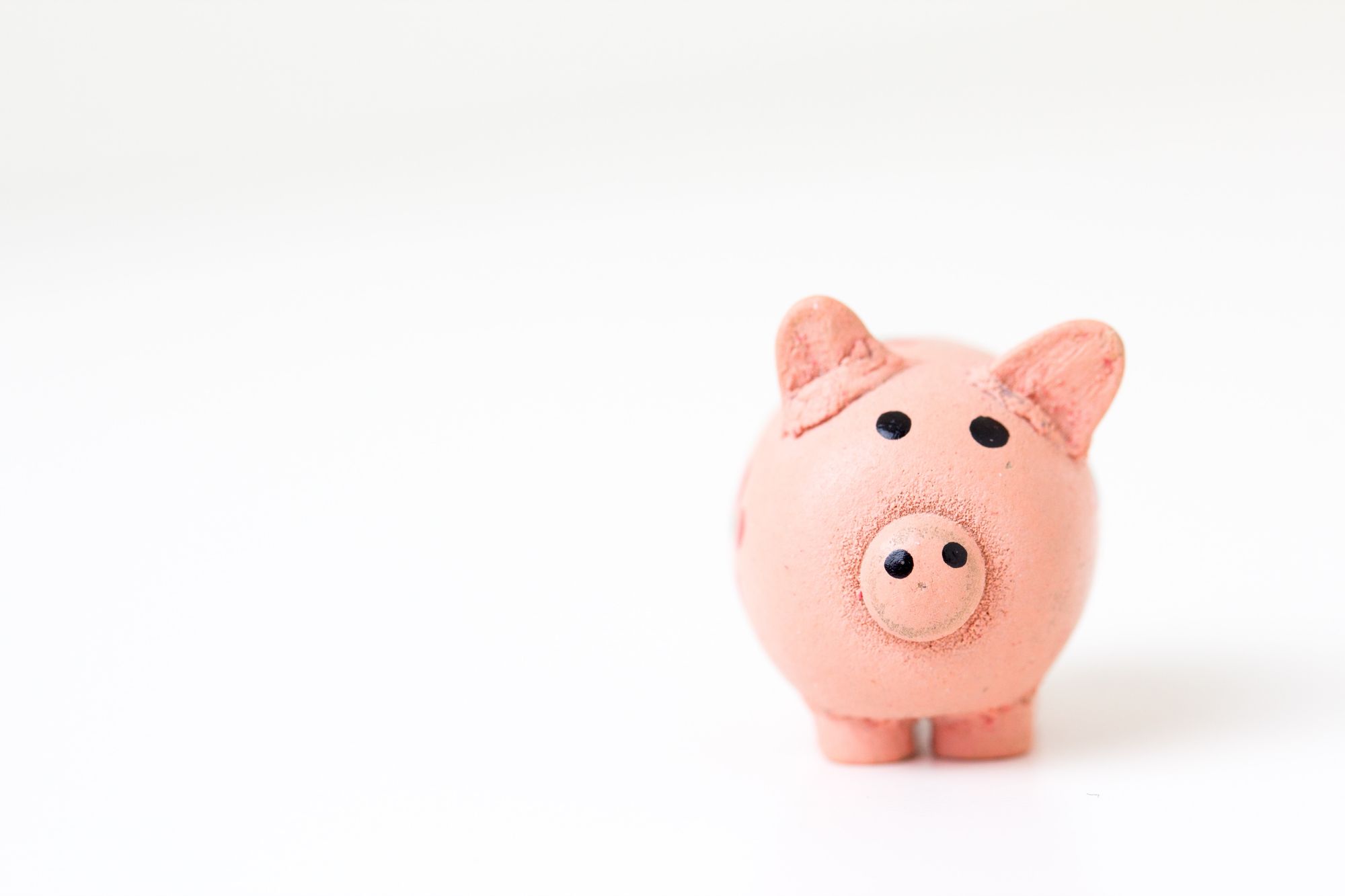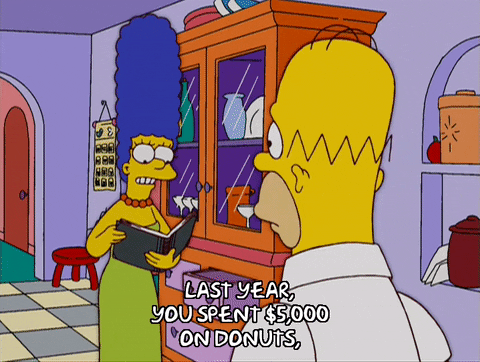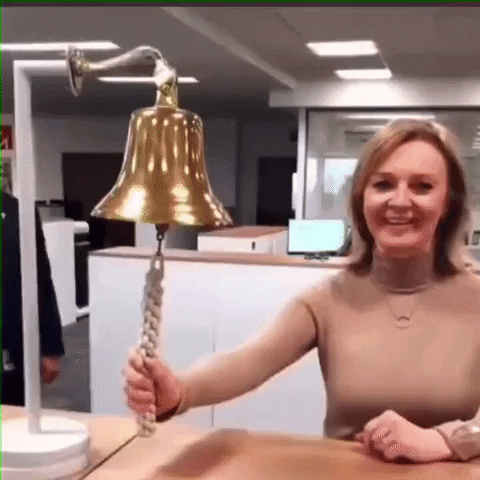How the 50/30/20 budget can help you manage your money
Discover the power of the 50/30/20 budgeting method. Learn how to seamlessly integrate it into your monthly savings routine for a brighter financial future.

Introduction
The cost of living crisis is biting hard with everything being more expensive. Millions of people across the UK are looking at their finances and wondering where to start. Some who have never needed to budget before have decided that it's about time they do and are working out the best method to reduce their spending.

When it comes to dealing with your money, I believe, the simpler the better. The more complex the system, the harder it is to stick with long term. Here's a simple example of how complexity leads to bad money handling. Keeping all your money sloshing in your current account. It is virtually impossible to understand your incomings and outgoings at a glance.
Dan Ariely (behavioural economist) has gone as far as calling the current account the "trash can" of your finances. Fancy budgeting apps go some way to help here, but even they have you doing some mental gymnastics. As a result, giving yourself a framework that works longterm and is easy to digest will set your up for success.
A popular method that has come from the US, is the 50/30/20 and it seems to work for a lot of people due to its simplicity. In this article we want to dig into the 50/30/20 budget, how it works, where it came from and how to implement it.
Where did the 50/30/20 budget come from? 🤔
It was popularised by US Senator Elizabeth Warren in her book "All Your Worth: The Ultimate Lifetime Money Plan". The book referenced over 20 years of research and concludes you don't need a complex budget to get your money in order. Most people need a framework to work within that is simple and easy to implement and stick to.
"When it comes to dealing with your money, I believe, the simpler the better. The more complex the system, the harder it is to stick with long term."
Don't let the fact a US politician came up with it put you off. It is really simple and easy to get your head around and with the right approach can make a big difference to your monthly cash management.

What is the 50/30/20 budget in a nutshell? 🔍
It's really simple!
First figure out your month's net income. This means, the amount that is paid into your bank account on pay day after tax, pensions etc is taken out. If you get paid weekly (assuming it is the same amount each week), take the amount you get paid after tax for the week and multiply by 52 to get your year's earnings, and divide by 12 to get your monthly net income.
Next you are going to look at your expenses (what you spend your money on), and you are going to divide them into three simple to understand categories.
The categories are:
1. Needs
Housing, food, energy bills and childcare i.e. the stuff you absolutely need to pay for on a month by month basis.
2. Wants
The spending that you do because you want something nice. Knowing you have a pot dedicated to this will help keep things in check but also act as a reward system for all your hard work earning the money. Think cinema trips, hobbies, clothes, etc.
3. Savings or debt
Finally a portion of your net pay is earmarked the second it hits your bank account for either savings for the future or to pay off any unsecured debts you may have. Think of this category as paying your future self, who will certainly thank you for it.
What percentage goes into each pot?

Spend 50% of your money on needs
50% of the money you earn after tax goes into the 'needs' pot. It is no surprise that this is the biggest chunk as it encompasses so much of our earnings including mortgages/rent, council taxes and all the other lovely stuff you need to pay to be alive in the UK.
Spend 30% of your money on wants
It is reasonable that you have a decent 'wants' category of spending, as it does encompass things like replacing clothing or your children's toys / hobbies. It makes sense that it isn't as big as your needs pot but also not the smallest. Living and enjoying your life is important for long-term change.
Stash 20% of your money for savings
And finally 20% is funnelled into a debt / savings pot. This should be distributed to your debts first. Once the debts are cleared you can move on to building a nice "Emergency Savings" or "Rainy Day" fund. You could even start investing in the stock markets for your retirement. Ultimately it is up to you, but this is a pot dedicated solely to paying future you.
Are these realistic given inflation and the Cost of Living crisis in the UK? 😅
Right, now you know 50/30/20 budget in a nutshell. Let's discuss if it is bat sh*t crazy given how much everything costs. Elizabeth Warren wrote the book that this budget was based on in 2005, before the 2008 financial crisis and before the impact of Trussinomics, Brexit and the war in Europe. It seems like a pipe dream for most households to get your 'needs' under 50%, let alone have anything left for wants or savings.

I believe that the principle of simplicity in this budget makes a lot of sense, but that the values need to be adjusted relatively depending on your circumstances. Maybe it is an 80/15/5 budget for your household. Only you can decide what is appropriate for you. What is important is trying to put as much as you can into the Savings/Debts category. Even if it's only 1/2%, it develops the habit for when the economy eventually improves.
What if I struggle with budgeting in general? 😵💫
All that being said, budgeting is a horrid word that sends shivers down the spine of most people, because it feels like shackles are being put on everyday living. I like to compare it to dieting, in that a crash diet filled with restrictions rarely works long term.
"It seems like a pipe dream for most households to get your 'needs' under 50%, let alone have anything left for wants or savings."
At Rule, we believe that there is a better way to 'budget' without spreadsheets or complexity. We believe what matters is to highlight and focus on your bad spending habits, and fix them. In doing so, you will save money simply by not spending on those sneaky little day to day costs that add up. So we built an app that does just that!
How many takeaways do you have a week? Do you buy coffees when you're at the office? What about ASOS? Do you like Ubers? These pesky hidden habits add up faster than most people realise. Fixing these habits can help you find money that you didn't realise you were wasting.